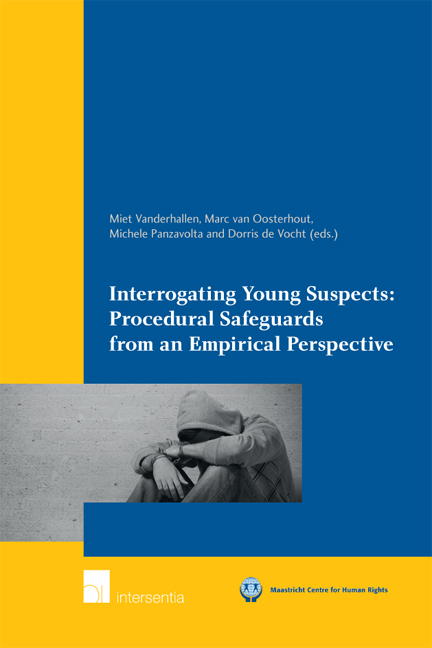Book contents
- Frontmatter
- Preface and Acknowledgements
- Contents
- List of Abbreviations
- Biographies
- Chapter 1 Introduction
- Chapter 2 Research Methodology
- Chapter 3 Belgium: Empirical Findings
- Chapter 4 England and Wales: Empirical Findings
- Chapter 5 Italy: Empirical Findings
- Chapter 6 The Netherlands: Empirical Findings
- Chapter 7 Poland: Empirical Findings
- Chapter 8 Integrated Analysis
- Chapter 9 The Guidelines
- Annexes
- Maastricht Series in Human Rights
Chapter 6 - The Netherlands: Empirical Findings
Published online by Cambridge University Press: 21 September 2018
- Frontmatter
- Preface and Acknowledgements
- Contents
- List of Abbreviations
- Biographies
- Chapter 1 Introduction
- Chapter 2 Research Methodology
- Chapter 3 Belgium: Empirical Findings
- Chapter 4 England and Wales: Empirical Findings
- Chapter 5 Italy: Empirical Findings
- Chapter 6 The Netherlands: Empirical Findings
- Chapter 7 Poland: Empirical Findings
- Chapter 8 Integrated Analysis
- Chapter 9 The Guidelines
- Annexes
- Maastricht Series in Human Rights
Summary
INTRODUCTION
In the Netherlands little is known about what happens when police interrogate juvenile suspects. Two recent studies have shed some light on the matter, where juvenile interrogations were included in a larger body of work. This study aims to fill at least part of this gap. In order to provide a picture of the current Dutch practice of interrogating juveniles, focus group interviews with lawyers, police officers and juveniles were conducted and recorded interrogations with young suspects were analysed.
The focus groups with legal actors were balanced on various criteria in order to obtain a heterogeneous composition of respondents. The focus group with police officers represented a mixture of training backgrounds. The aim was to have a proper balance between male and female respondents but due to unforeseen cancellations four female and one male participants were present. These five participants came from three different regions, covering a large section of the Netherlands. The focus group with lawyers aimed at a balance on general selection criteria, but late cancellations resulted in a small group consisting of two male lawyers and one female lawyer. Although this was only a small group, their views varied widely. Nevertheless, caution is needed when interpreting the findings of such a small group. No focus group with appropriate adults (hereafter: AA) was organised since AAs as such find no basis in Dutch criminal procedural law.
The focus group with juveniles was conducted at a youth detention centre. Four boys participated of whom one was still a juvenile (17 years old). The other participants were young adults who had been interrogated when they were juveniles. All participants were convicted for an offence.
The sample of recorded interrogations was based on the general selection criteria. In total 12 recorded interrogations were analysed, of which eight were video-recorded and four were audio-recorded. With regard to 11 of these interrogations, the written record was analysed as well. The interrogations concerned juveniles between 11 and 17 years old of which most juveniles were male (eight). Half of the juveniles were invited to attend the interrogation and the other half were brought to the police station after arrest.
- Type
- Chapter
- Information
- Interrogating Young Suspects IIProcedural Safeguards from an Empirical Perspective, pp. 217 - 266Publisher: IntersentiaPrint publication year: 2016

